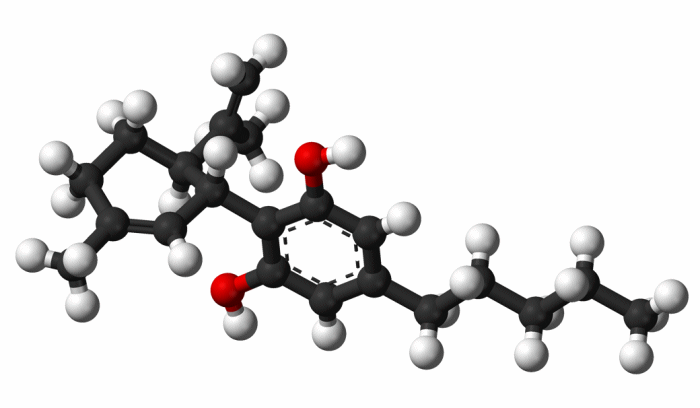Much of the information we provide on Hemp Gazette is in relation to the two best-known and probably most researched cannabinoids – cannabidiol (CBD) and tetrahydrocannabinol (THC). But there’s so much more – cannabis has a very complex cannabinoid profile.

What is a cannabinoid?
As we mentioned in our introduction to medical cannabis, a cannabinoid is a chemical compound – and there are many, many different types. Part of the role of these compounds in plants (phytocannabinoids) is thought to be providing the plant with some protection from UV rays, pestilence and predation.
The human body produces its own type of cannabinoids, called endocannabinoids. These are crucial to regulating important functions including sleep, mood, pain control and immune response. When endocannabinoid production isn’t sufficient, it can result in serious health conditions. That’s when phytocannabinoids such as those in the cannabis plant can fill the gap in humans, by replacing what the body isn’t producing or not producing sufficient quantities of.
How many different cannabinoids in cannabis?
We’ve seen numbers ranging from 66 to at least 113 – and very few cannabinoids have been well-researched. Below we list all cannabinoids we’re aware of and will add more as they come to our attention. We’ve linked to further information on those we’ve written about.
Cannabichromenes
- Cannabichromene (CBC)
- Cannabichromenic acid (CBCA)
- Cannabichromevarin (CBCV)
- Cannabichromevarinic acid (CBCVA)
Cannabicyclols
- Cannabicyclol (CBL)
- Cannabicyclolic acid (CBLA)
- Cannabicyclovarin (CBLV)
Cannabidiols
- Cannabidiol (CBD)
- Cannabidiol monomethylether (CBDM)
- Cannabidiolic acid (CBDA)
- Cannabidiorcol (CBD-C1)
- Cannabidivarin (CBDV)
- Cannabidivarinic acid (CBDVA)
Cannabielsoins
- Cannabielsoic acid B (CBEA-B)
- Cannabielsoin (CBE)
- Cannabielsoin acid A (CBEA-A)
Cannabigerols
- Cannabigerol (CBG)
- Cannabigerol monomethylether (CBGM)
- Cannabigerolic acid (CBGA)
- Cannabigerolic acid monomethylether (CBGAM)
- Cannabigerovarin (CBGV)
- Cannabigerovarinic acid (CBGVA)
Cannabinols and cannabinodiols
- Cannabinodiol (CBND)
- Cannabinodivarin (CBVD)
- Cannabinol (CBN)
- Cannabinol methylether (CBNM)
- Cannabinol-C2 (CBN-C2)
- Cannabinol-C4 (CBN-C4)
- Cannabinolic acid (CBNA)
- Cannabiorcool (CBN-C1)
- Cannabivarin (CBV)
Cannabitriols
- 10-Ethoxy-9-hydroxy-delta-6a-tetrahydrocannabinol
- 8,9-Dihydroxy-delta-6a-tetrahydrocannabinol
- Cannabitriol (CBT)
- Cannabitriolvarin (CBTV)
Delta-8-tetrahydrocannabinols
- Delta-8-tetrahydrocannabinol (Δ8-THC)
- Delta-8-tetrahydrocannabinolic acid (Δ8-THCA)
Delta-9-tetrahydrocannabinols
- Delta-9-tetrahydrocannabinol (THC)
- Delta-9-tetrahydrocannabinol-C4 (THC-C4)
- Delta-9-tetrahydrocannabinolic acid A (THCA-A)
- Delta-9-tetrahydrocannabinolic acid B (THCA-B)
- Delta-9-tetrahydrocannabinolic acid-C4 (THCA-C4)
- Delta-9-tetrahydrocannabiorcol (THC-C1)
- Delta-9-tetrahydrocannabiorcolic acid (THCA-C1)
- Delta-9-tetrahydrocannabivarin (THCV)
- Delta-9-tetrahydrocannabivarinic acid (THCVA)
Miscellaneous cannabinoids
The following are other cannabinoids not classified in a class, or those we’re not sure what class they fit into.
- 10-Oxo-delta-6a-tetrahydrocannabinol (OTHC)
- Cannabichromanon (CBCF)
- Cannabifuran (CBF)
- Cannabiglendol
- Cannabiripsol (CBR)
- Cannbicitran (CBT)
- Dehydrocannabifuran (DCBF)
- Delta-9-cis-tetrahydrocannabinol (cis-THC)
- Tryhydroxy-delta-9-tetrahydrocannabinol (triOH-THC)
… and we’d be remiss not to mention this doozy:
3,4,5,6-Tetrahydro-7-hydroxy-alpha-alpha-2-trimethyl-9-n-propyl-2,6-methano-2H-1-benzoxocin-5-methanol, or OH-iso-HHCV to its friends.
A major hat-tip is in order for Rudolf Brenneisen, author of the “Chemistry and Analysis of Phytocannabinoids and Other Cannabis Constituents*”, who has documented many of the above cannabinoids.
Many of the cannabinoids above are yet to be studied in any real degree to determine their potential therapeutic benefit (or otherwise). It’s highly likely the cannabis plant has more suprises for humanity. What makes things even more interesting is the potential for combinations of cannabinoids to offer a therapeutic effect that they may not have on their own, or to a lesser degree.
While the world of cannabinoids is a complex one, at least the next time someone drops 3,4,5,6-Tetrahydro-7-hydroxy-alpha-alpha-2-trimethyl-9-n-propyl-2,6-methano-2H-1-benzoxocin-5-methanol into a conversation at a dinner party you’ll be able to nod sagely, knowing what they are talking about.
If we’ve missed any cannabinoids that have been named or you spot anything needing correcting, please drop us a line and let us know.
Cannabinoids are only part of the cannabis story – albeit a major one. There’s also compounds called terpenes, which we’ll look at in another article.
*Brenneisen R. (2007) Chemistry and Analysis of Phytocannabinoids and Other Cannabis Constituents. In: ElSohly M.A. (eds) Marijuana and the Cannabinoids. Forensic Science And Medicine. Humana Press. Link
No comments:
Post a Comment